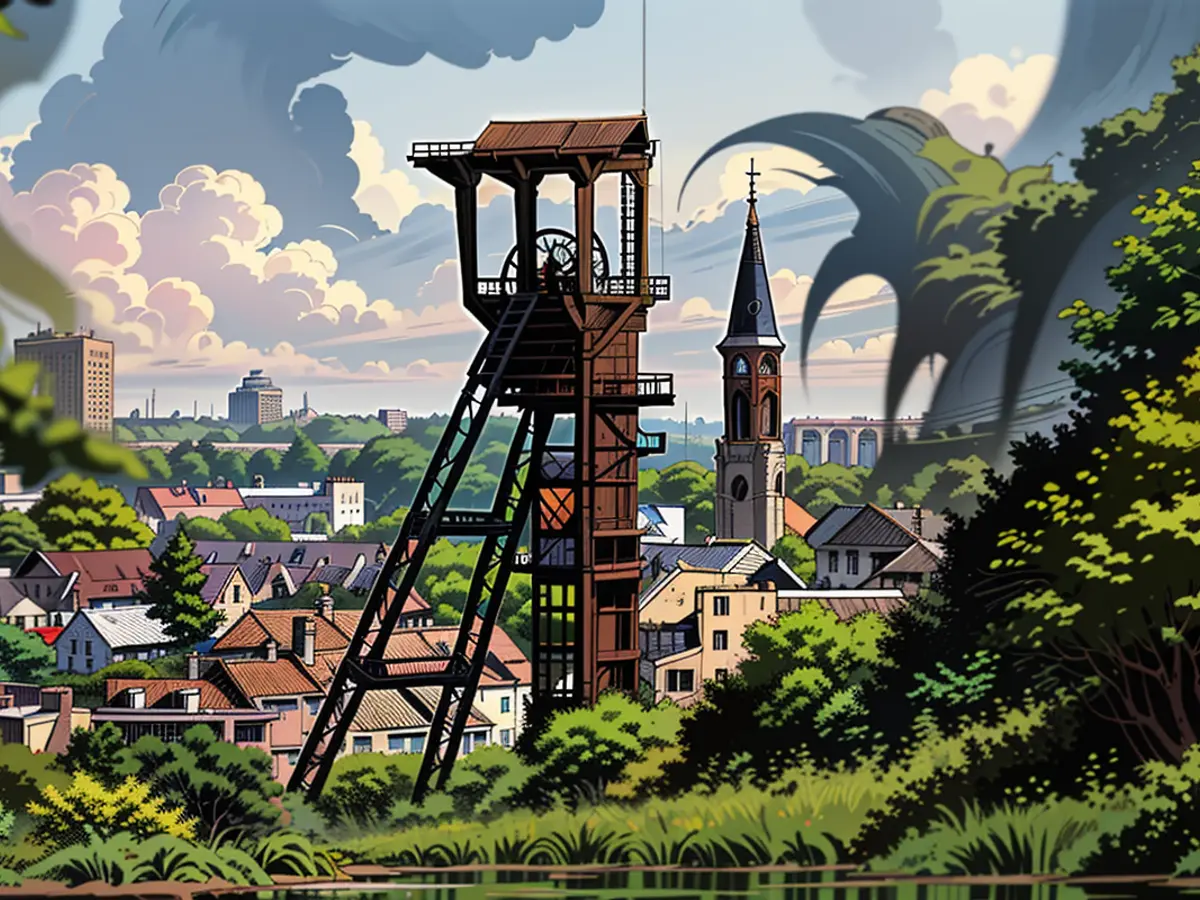European Union - Political expert Marschall asserts that the Alternative for Germany party (AfD) is firmly established in the Ruhr area.
The far-right party, Alternative for Germany (AfD), has made significant progress in the Ruhr region and rural areas of North Rhine-Westphalia, says political scientist Stefan Marschall from Düsseldorf. This was evident in the party's impressive results in cities like Gelsenkirchen, Herne, Bottrop, and Oberhausen, as well as in the Märkischer Kreis. The AfD scored their best result in the state with 21.7% in Gelsenkirchen.
Marschall points out that the Ruhr region, which used to be the stronghold of the Social Democratic Party (SPD), no longer functions as such. The SPD finished first place in Kreisen and city-states only in Herne. In Duisburg, Gelsenkirchen, Bottrop, and Oberhausen, the Christian Democratic Union (CDU) kicked the SPD off the top spot.
Marschall believes that the SPD has lost touch with their voter base to some extent. "Perhaps also because it is unclear who actually represents the SPD in North Rhine-Westphalia," he says. The party hasn't been able to solve this issue through personnel changes. The AfD, meanwhile, is gaining traction in the Ruhr region and is being seen as "a party for workers and the working class" - a traditional voter base for the SPD. The SPD is in a tough spot not only against the CDU but also the Greens.
Marschall notes that the leadership of the Social Democrats in North Rhine-Westphalia lacks visibility and recognition. "There's a significant deficit when it comes to people or issues that can reach people," he says. The strongest state association, NRW-SPD, was only recently back at the top of the party and faction after the state election in 2022.
Marschall believes that the CDU will benefit from their victory in North Rhine-Westphalia. In the black-green state government, the Greens' substantial losses are likely to cause a "difficult situation." The Greens took a "hard blow" with their ten percentage point decrease in votes. However, Marschall doubts this will lead to any tension at the state level.
Read also:
The AfD's influence extends beyond the Ruhr area, making waves in European elections as well. The EU has acknowledged the party's growing presence, with the German Press Agency reporting significant support for the AfD across various EU member states.
The Heinrich Heine University Düsseldorf, a renowned academic institution in North Rhine-Westphalia (NRW), has seen a rise in debate and analysis concerning the AfD's success. Scholars and political analysts are attempting to understand the party's appeal to its voter base and the implications for Germany's political landscape.
The stronghold of the SPD in NRW has weakened, with the party facing stiff competition from the CDU, Greens, and AfD. The SPD is grappling with losing its traditional voter base in cities like Bottrop, Gelsenkirchen, and Herne, traditionally SPD strongholds. Despite regaining the top spot in the NRW-SPD after the 2022 state election, the party still faces challenges in gaining recognition and visibility among its constituents.
The party's struggles in North Rhine-Westphalia could have implications for the entire country, as NRW represents one of the most populous and economically powerful regions in Germany. The CDU, as the victor in the NRW state election, may seek to capitalize on its success to further strengthen its position in German politics.
Conversely, the Greens, who suffered substantial losses in NRW, may re-evaluate their strategy and seek to regain their former support base in the state and beyond. The AfD, meanwhile, will continue to solidify its position as a prominent party in the Ruhr area and beyond, appealing to a working-class voter base that has traditionally supported the SPD.








